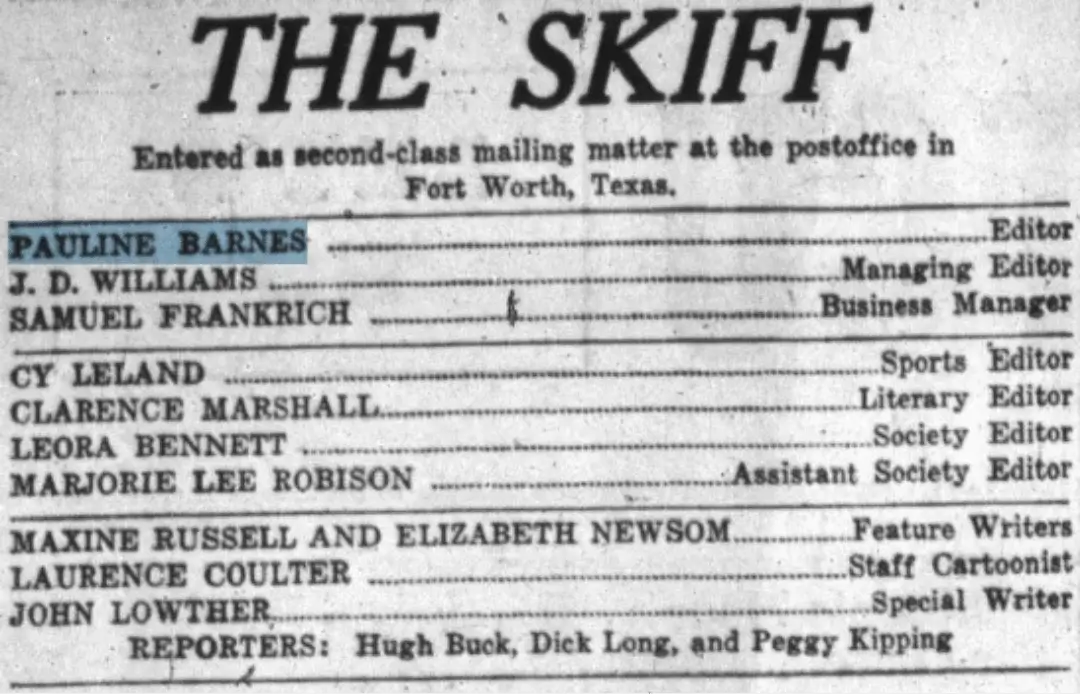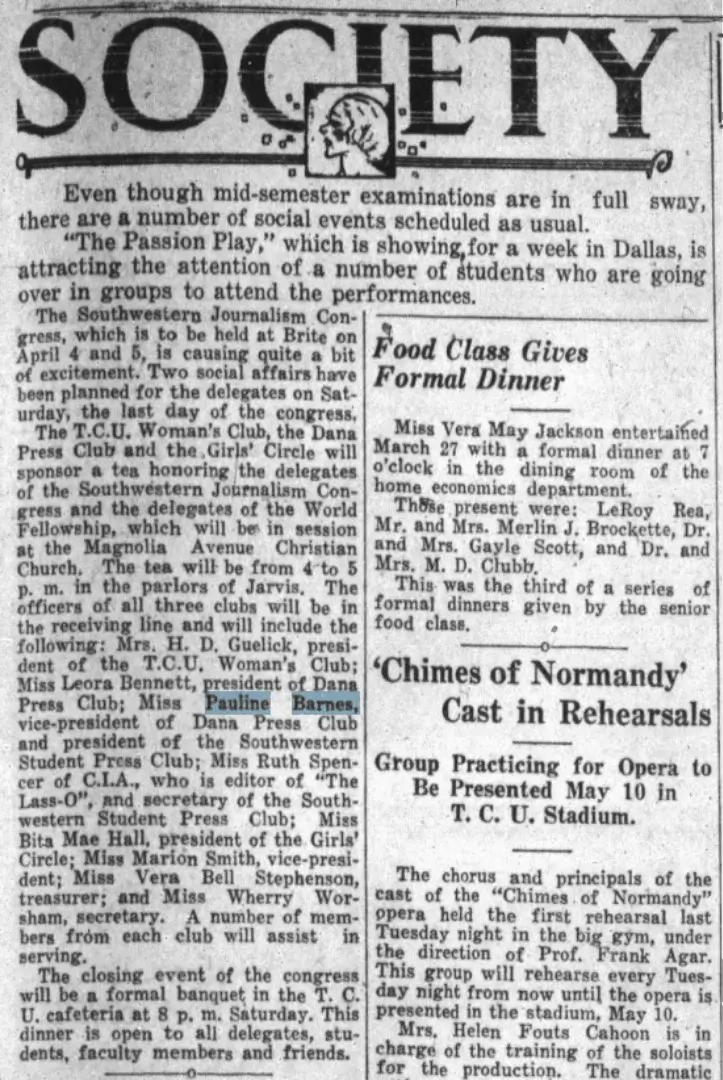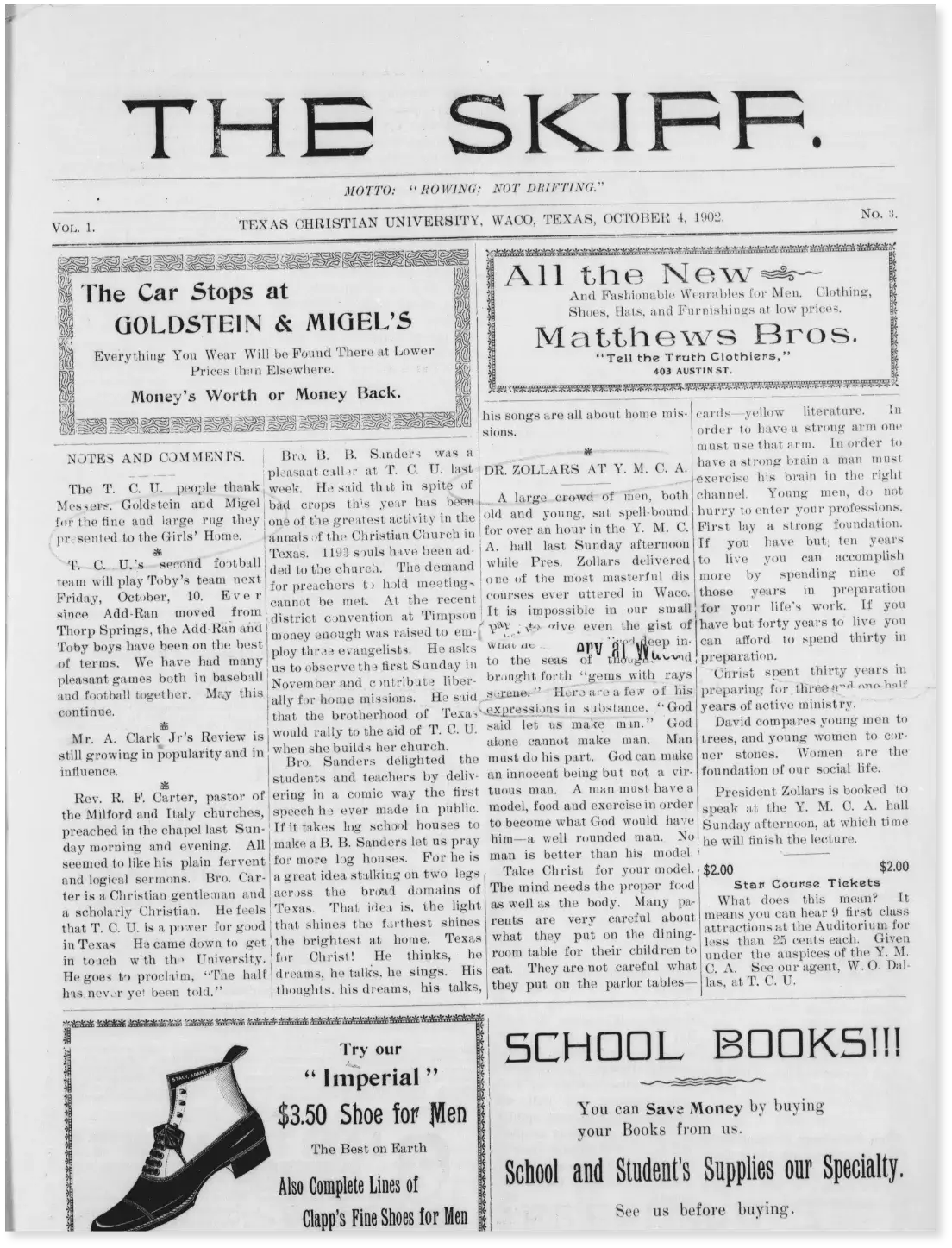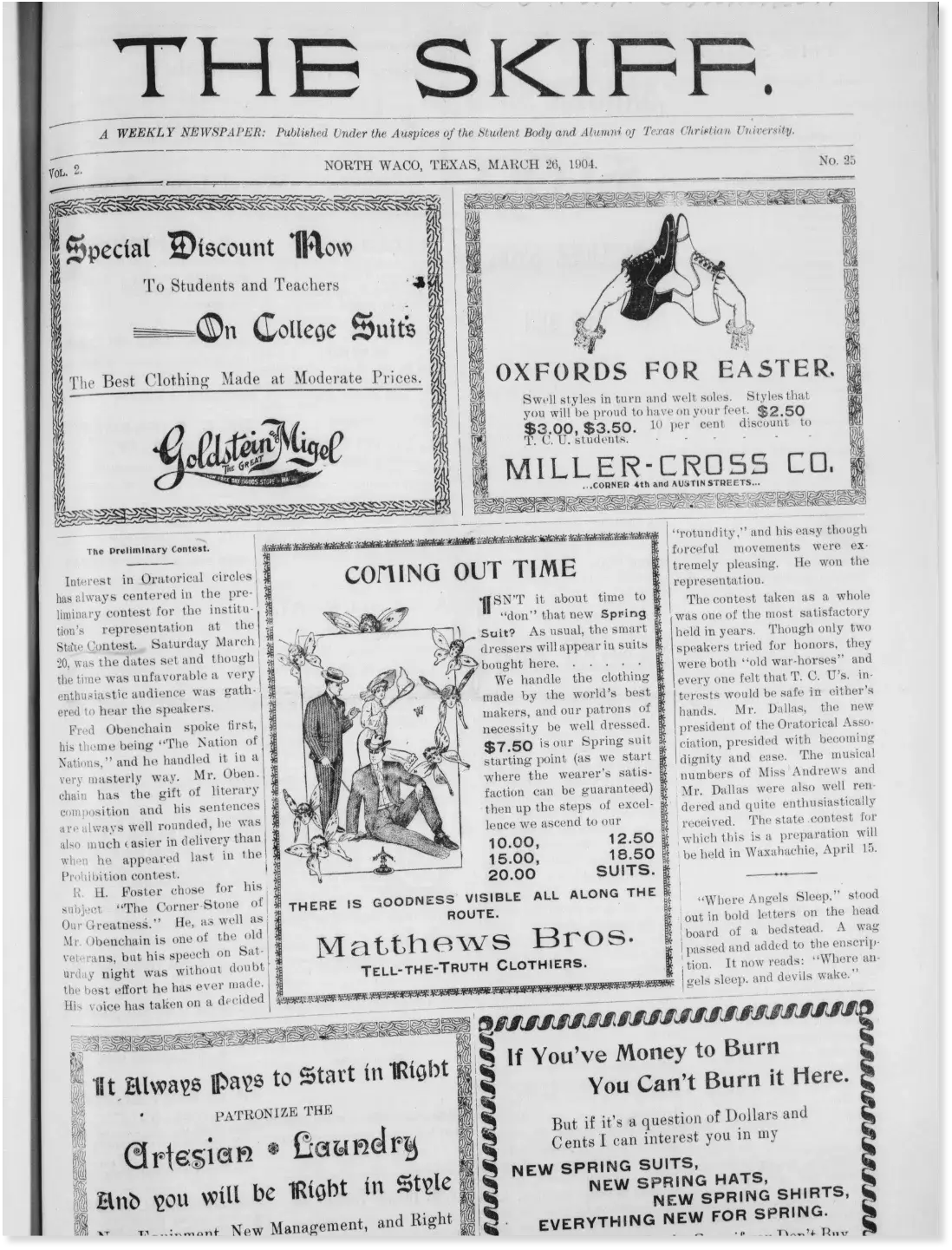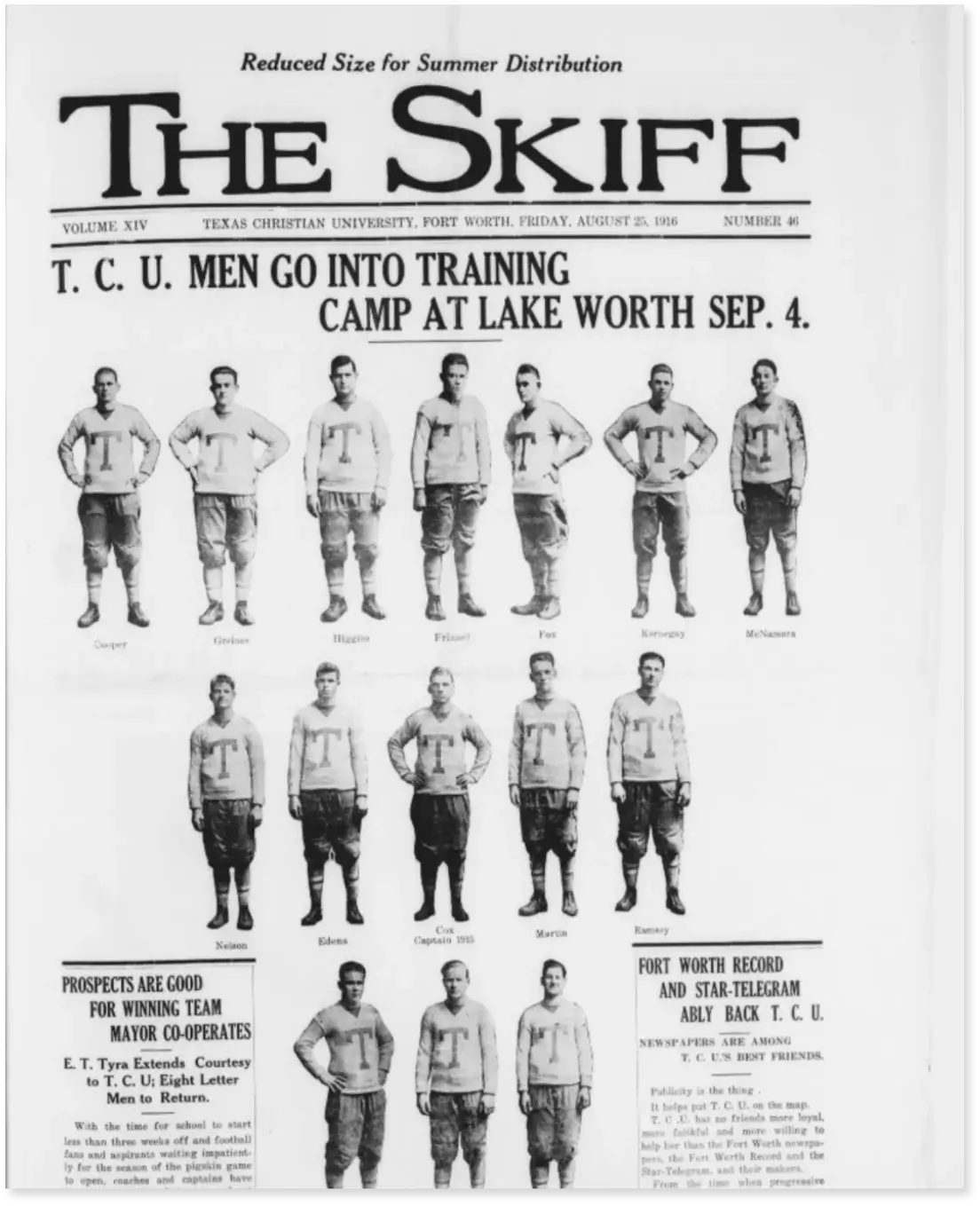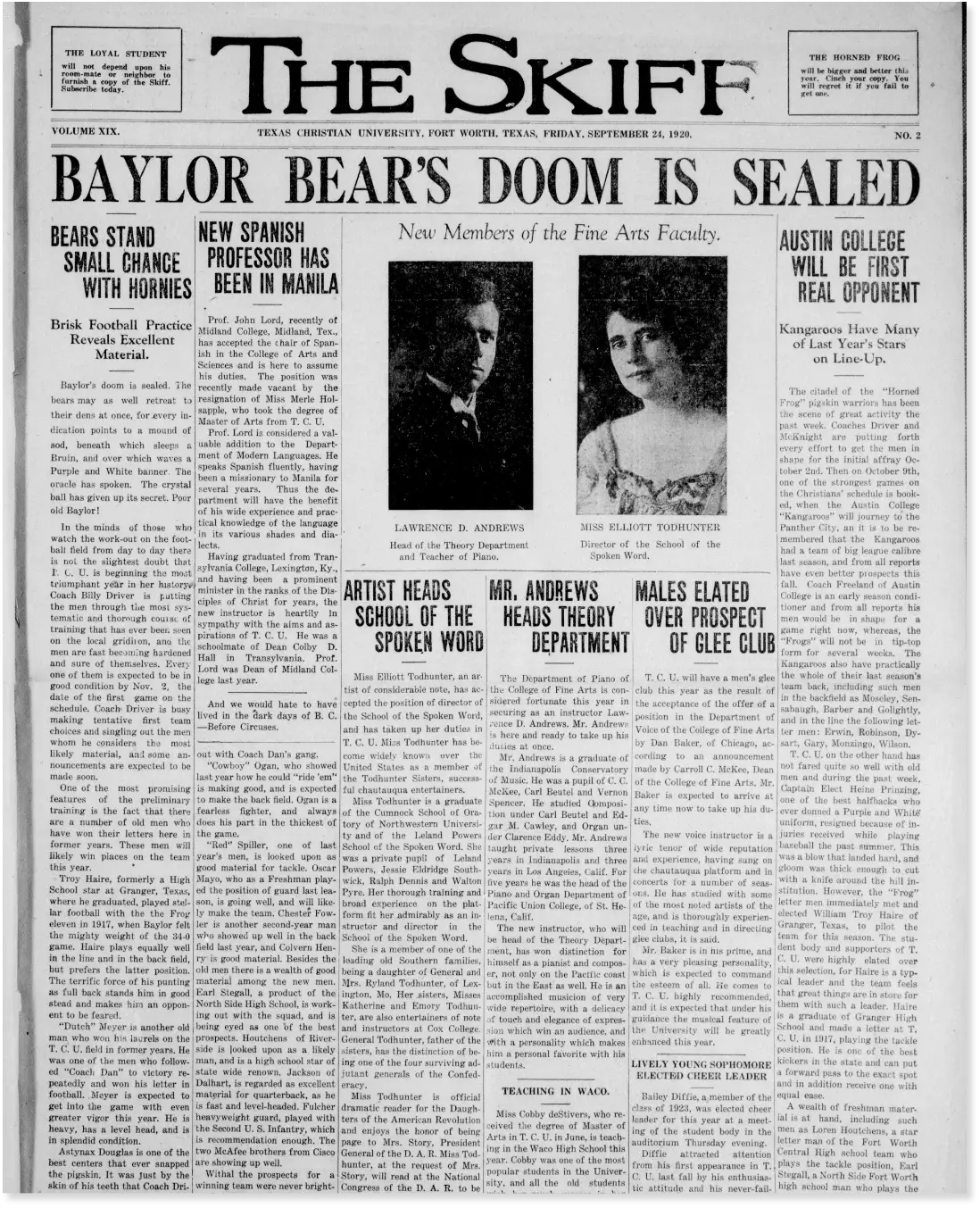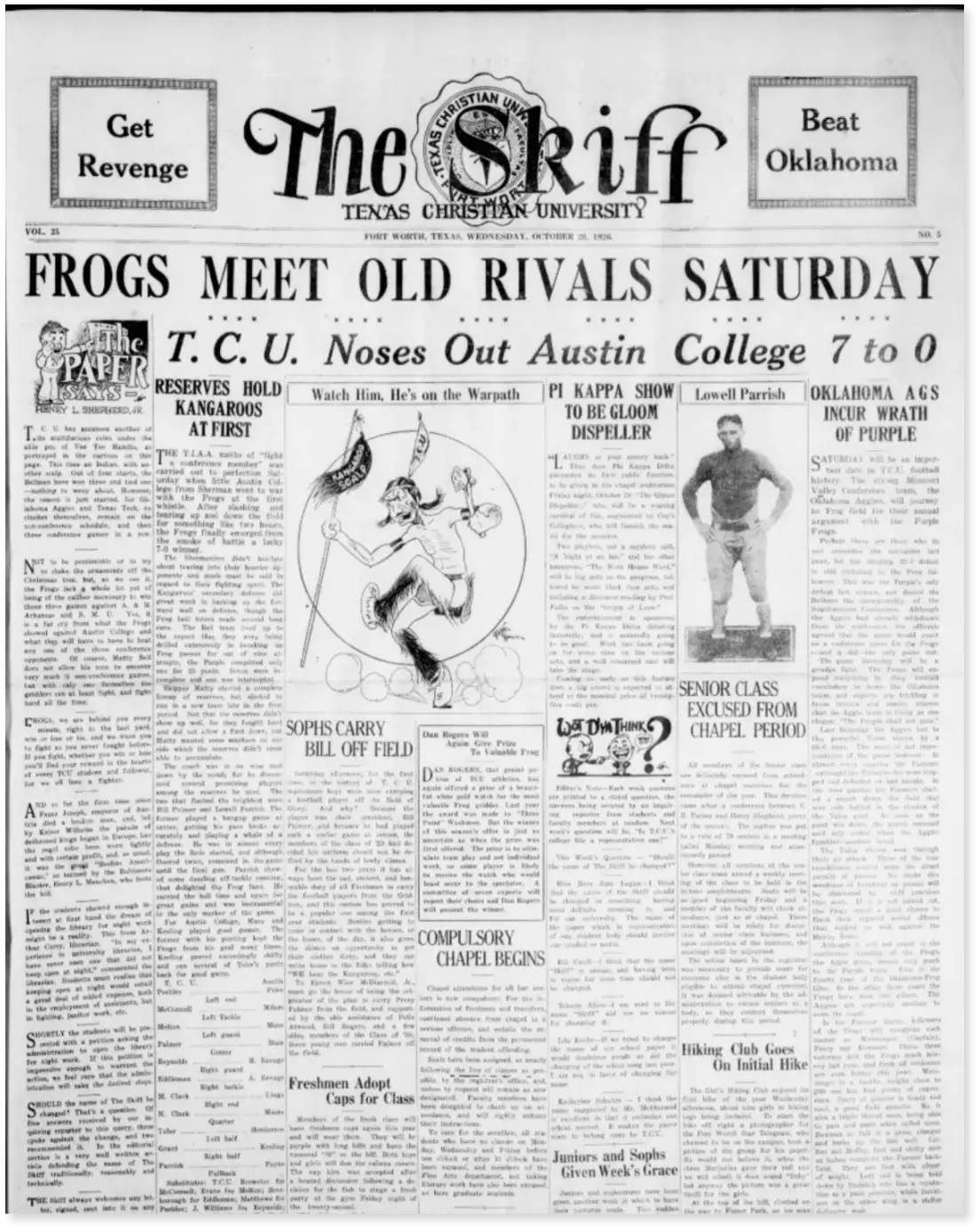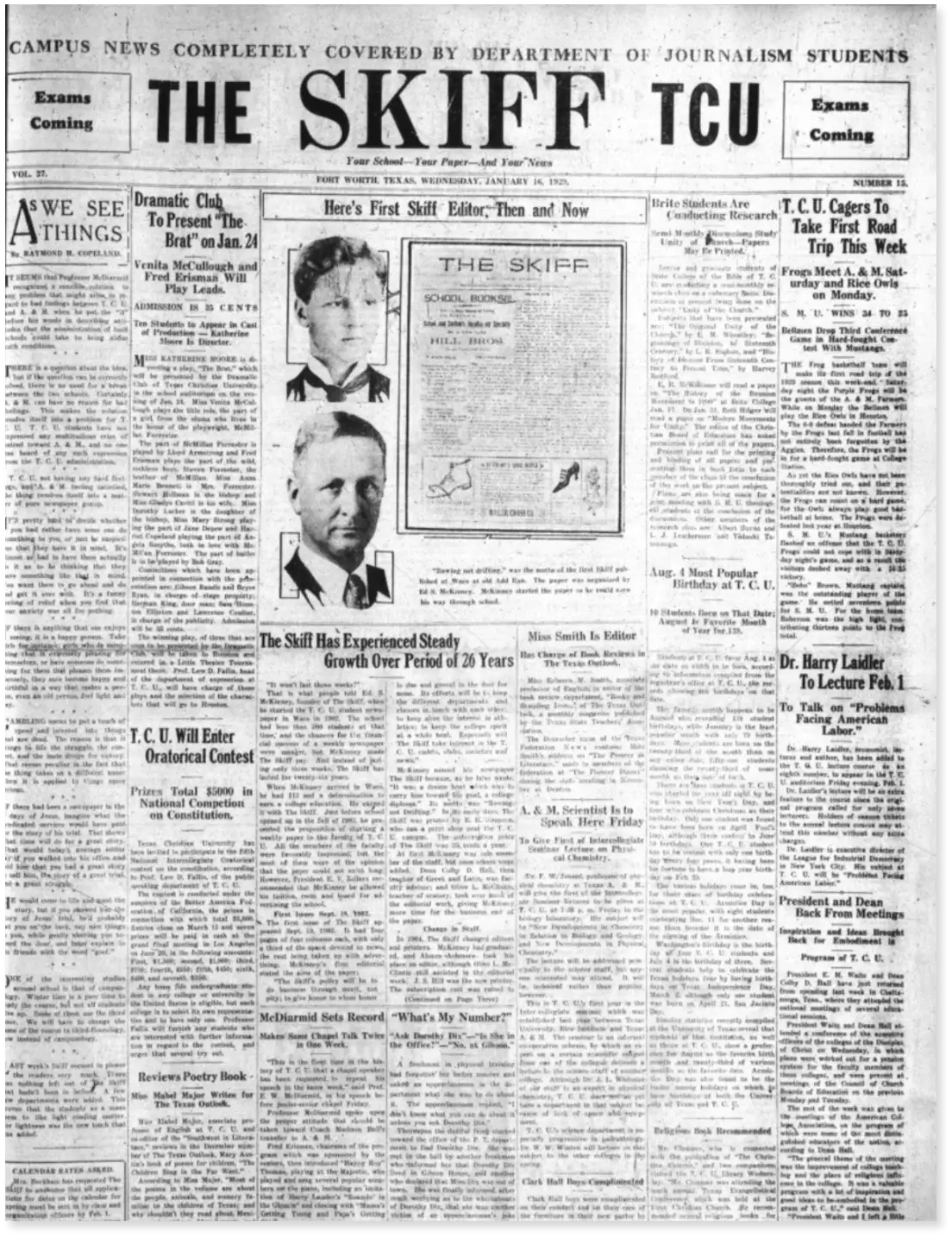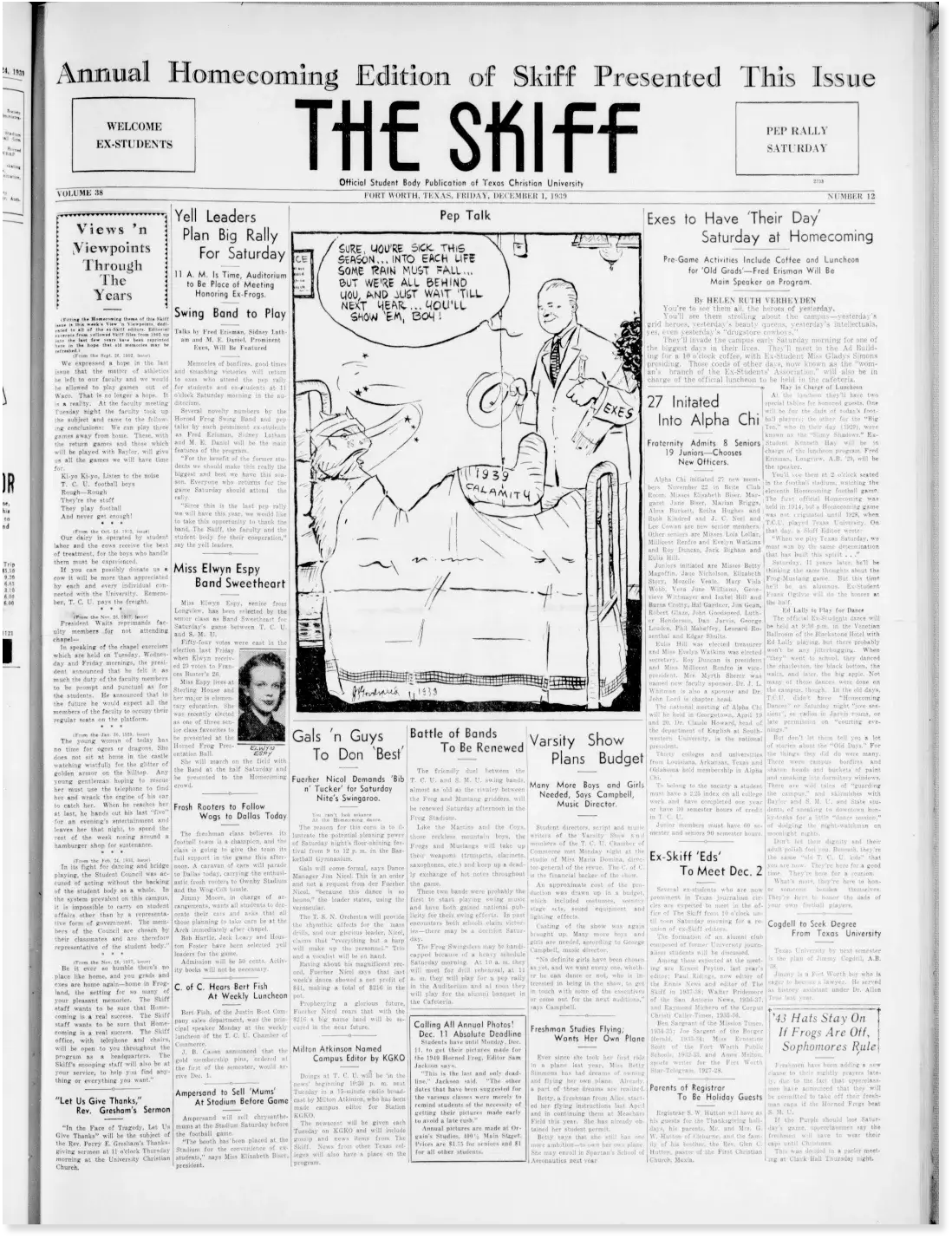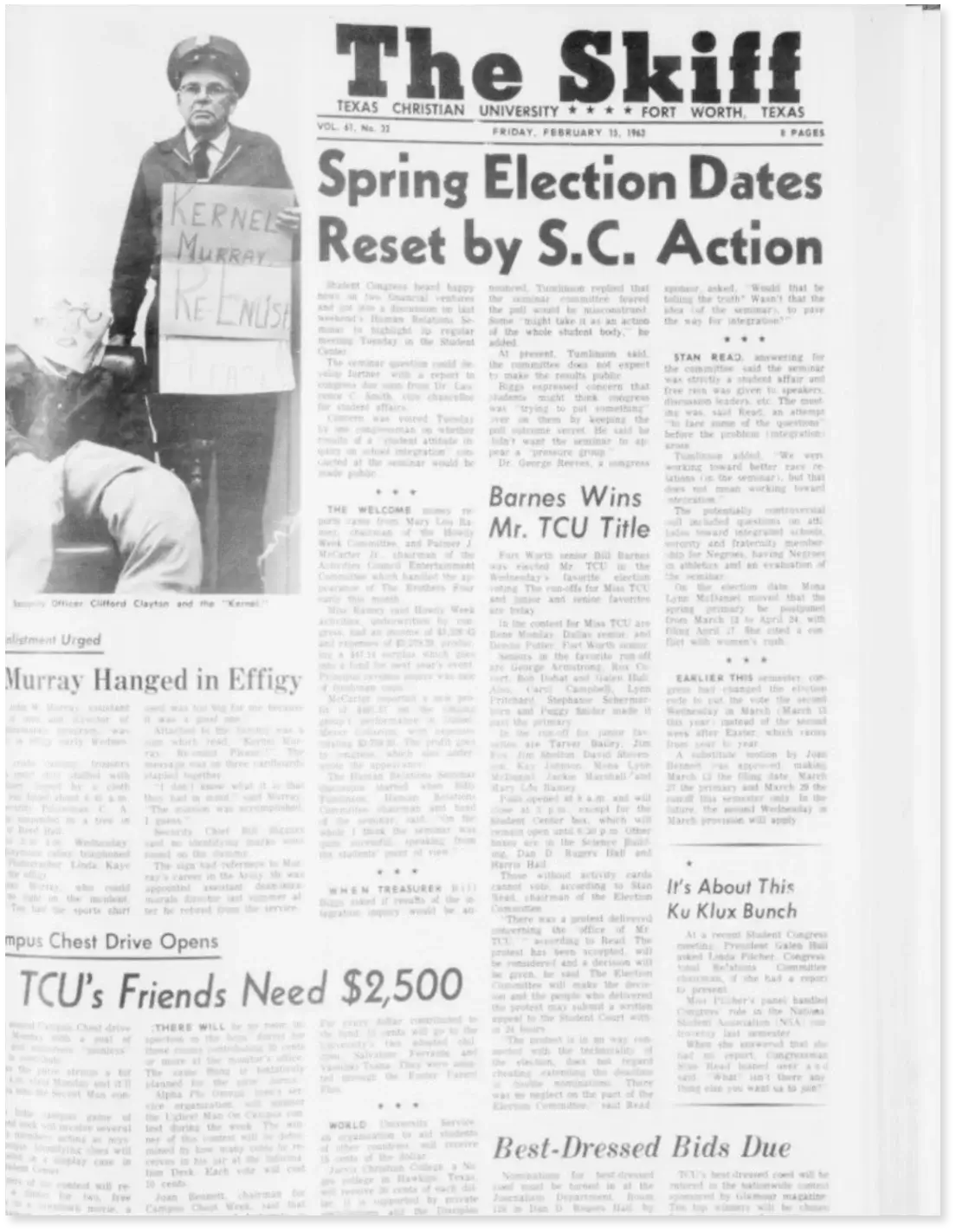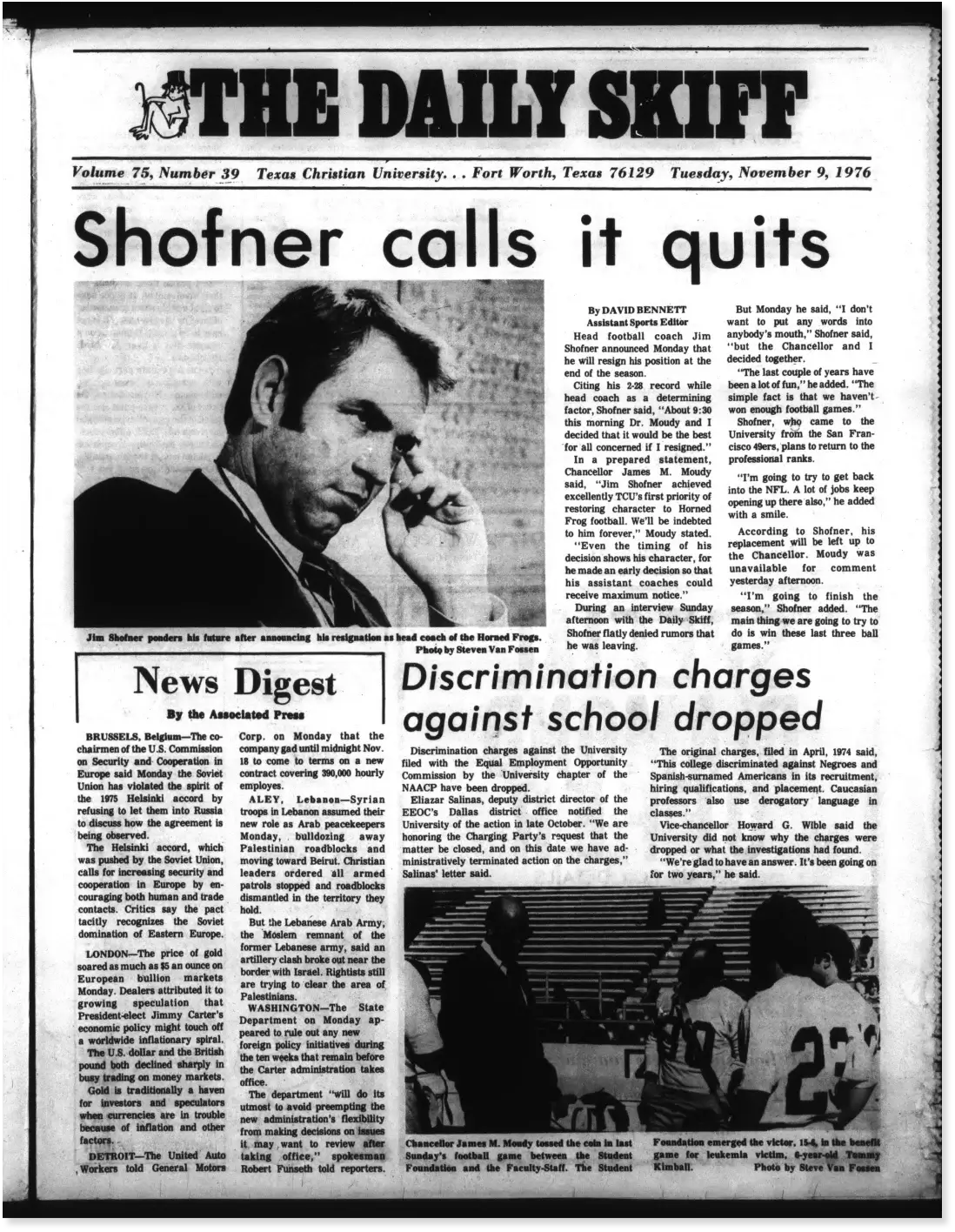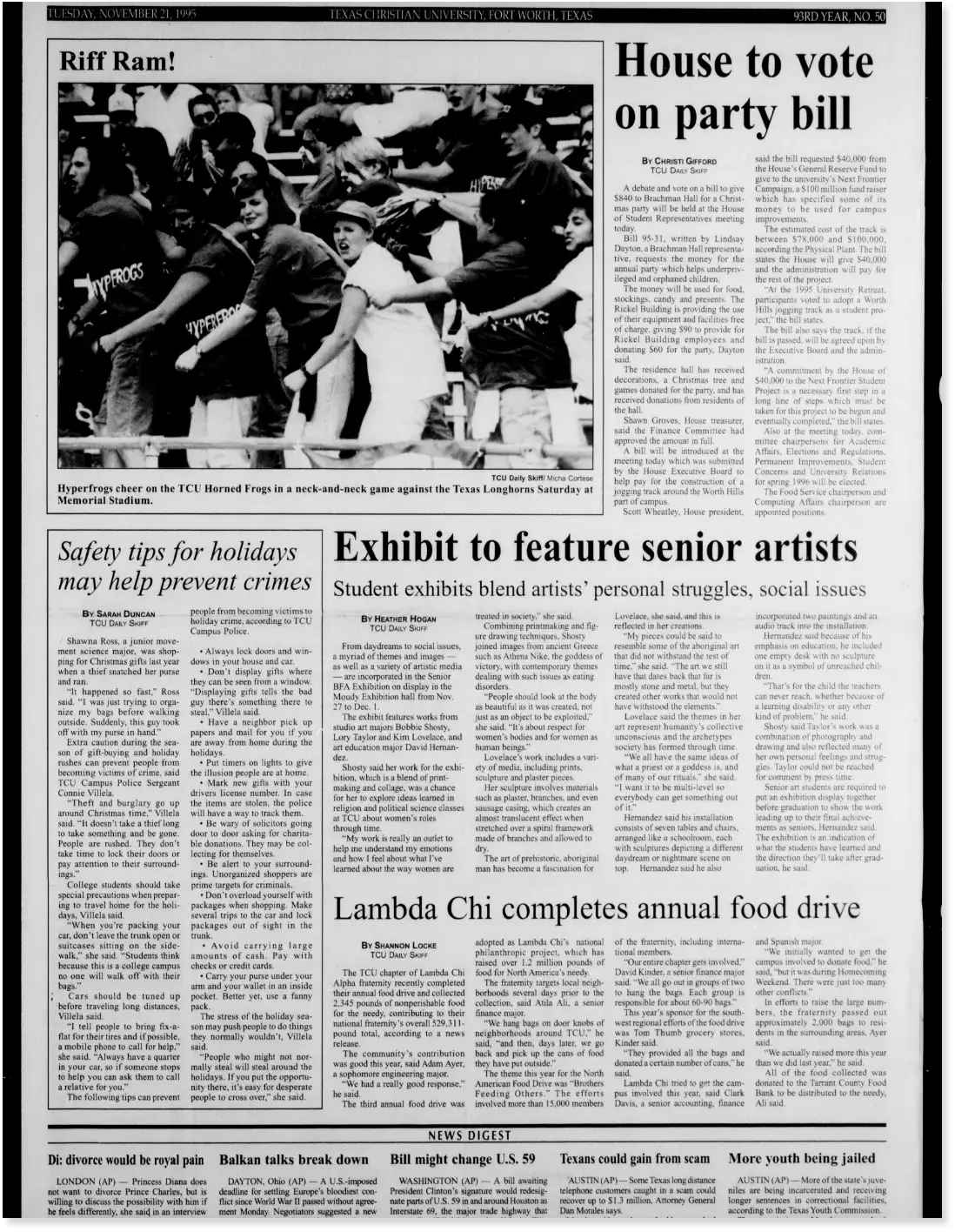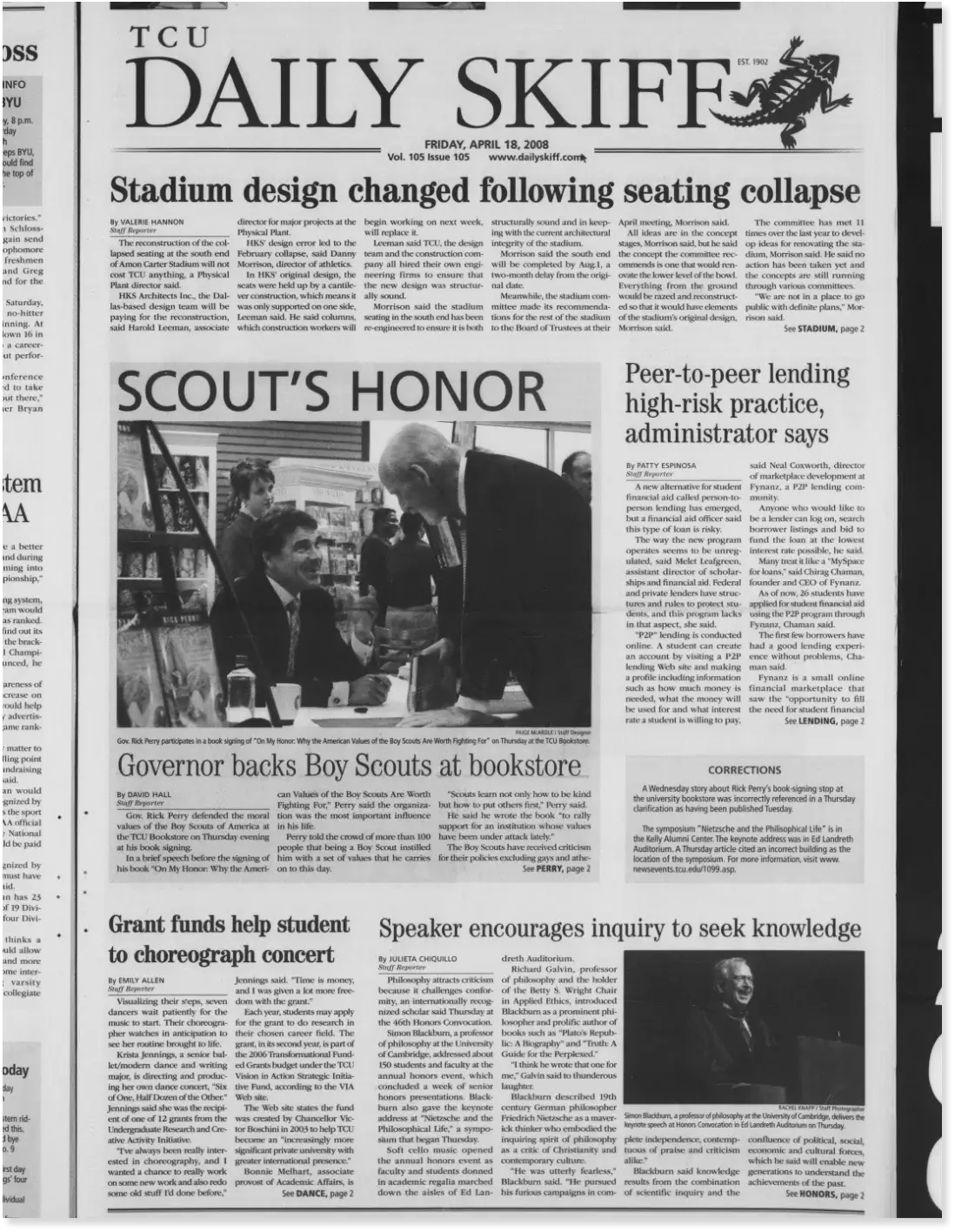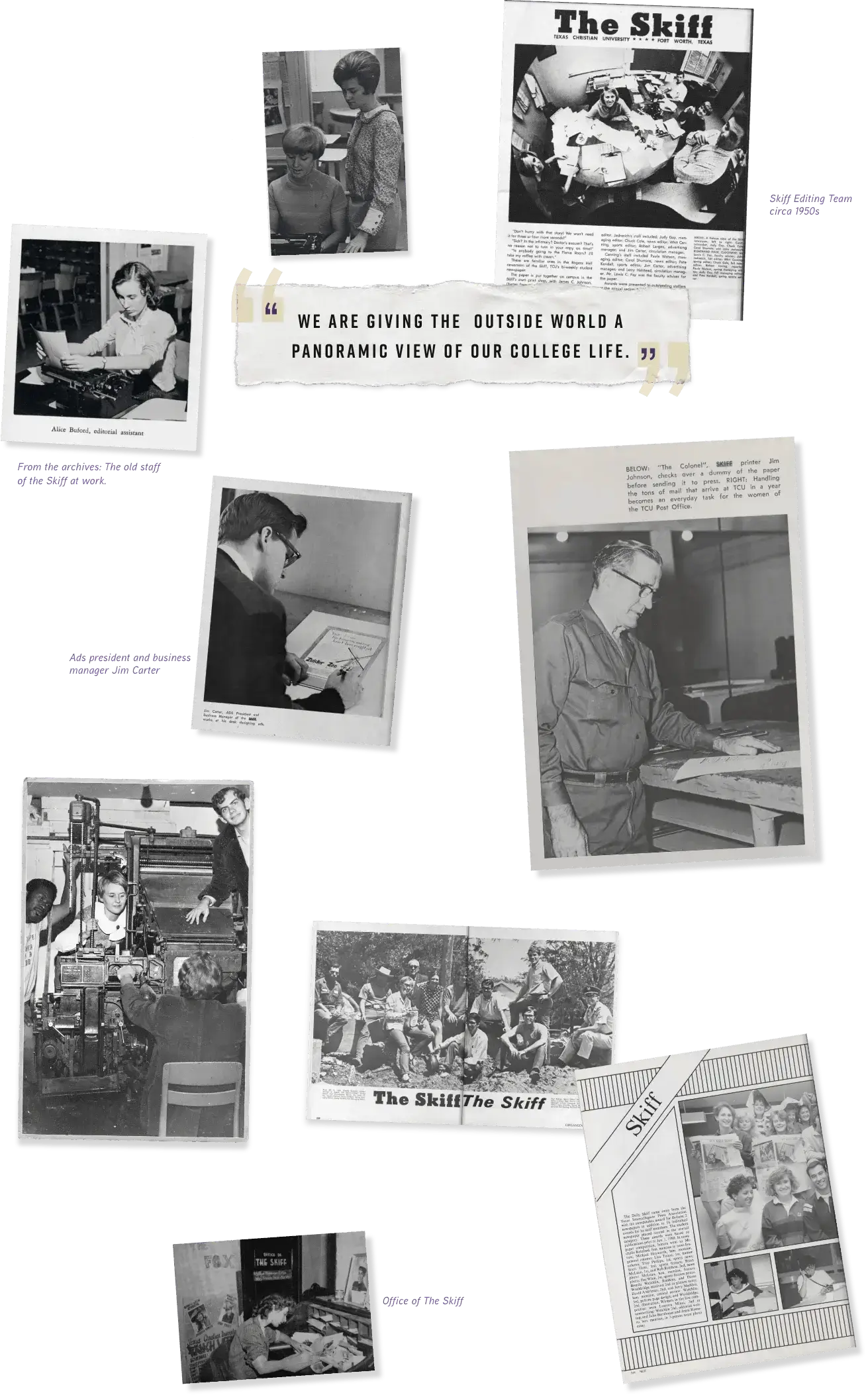The Skiff newspaper: Sailing through change
Scroll

Vol. 1.
TEXAS CHRISTIAN UNIVERSITY, WACO, TEXAS OCTOBER 4, 1902
No. 1.
The Skiff Newspaper: Sailing Through Change
Ed McKinney did not create The Skiff newspaper in 1902 because he had grand journalistic ambitions. He created The Skiff because he needed to pay for college.
View 1950 skiff Masthead illustrationEd McKinney: Promoting
TCU in print
and paying
for college
An entrepreneurial former football player, McKinney approached local businesses about the possibility of advertising in a newspaper he would publish and distribute at TCU. McKinney generated enough interest to sell TCU officials on the idea, too. They provided him with tuition, room and board, as well as any profits he could make selling advertisements and subscriptions priced at 50 cents a year.
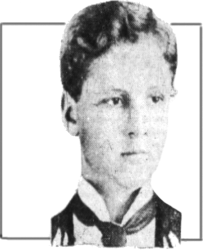
McKinney named his newspaper The Skiff, after a small boat typically rowed by one person. He declared he would use the paper to “sail through the financial weather.” The Skiff’s motto would be “Rowing, Not Drifting” in pursuit of campus news, and the newspaper’s stories would aim more toward promoting TCU than toward covering campus controversies. The Skiff would “give the outside world a panoramic view of our college life.” Stories would help to promote “clean athletics” and encourage “healthy rivalry” between campus literary societies, for instance.
Their Motto:
“ROWING, NOT DRIFTING”
“Early issues reflected the publication’s mission, with flowery discourses about the activities of the various literary societies and
lots of rah-rah for the football team,” according to TCU Magazine. “The ads were for men’s clothing, other schools, entertainment and local shops and mercantiles — as well as what appears to have been an early version of the classifieds, with notes about who visited whom, items for sale, more calls for support for the football team and personal commentary about whatever someone felt like saying.”
McKinney edited The Skiff for three years, after which a new editor and business manager took the helm. Relatively soon, TCU created a publications committee that selected the newspaper’s business manager. The student body elected the editor, who was then confirmed by the publications committee.
SKIFF CLASSIFIEDS
The ads of the skiff newspaper






Pauline Barnes: Breaking
Gender Barriers
year. But the committee could not ignore the election results overwhelmingly in her favor, and Barnes became the paper’s first woman editor.
More than 70 years later, Barnes was interviewed about her history-making appointment. “Looking back I guess it was a rather big accomplishment, especially for the time,” she told TCU Magazine. “I was sure they elected me because I was pretty or something, but I guess it was because I had written the most
for the paper the semester before.” She described her time as Skiff editor as “the most fun job on campus” because “working for the paper was a great way to meet people from all over.”
The student body was perhaps more progressive than the publications committee. In 1929, students elected Pauline Barnes by a large margin to serve as Skiff editor. Male publications committee members thought she was “a society girl” because she had been The Skiff’s society page editor the previous year. But the committee could not ignore the election results overwhelmingly in her favor, and Barnes became the paper’s first woman editor.
More than 70 years later, Barnes was interviewed about her history-making appointment. “Looking back I guess it was a rather big accomplishment, especially for the time,” she told TCU Magazine. “I was sure they elected me because I was pretty or something, but I guess it was because I had written the most for the paper the semester before.” She described her time as Skiff editor as “the most fun job on campus” because “working for the paper was a great way to meet people from all over.”
A newspaper flourishing in a new journalism program
Barnes had been an English major when she arrived at TCU. She switched her major to journalism, when The Skiff became an official component of the newly established journalism curriculum.
J. Willard Ridings had been hired to create a TCU Department of Journalism and to establish the university’s first public relations bureau. Ridings knew that a respectable journalism program needed a laboratory in which students could practice reporting and editing skills, so The Skiff became that lab. Soon, a growing number of journalism students crowded The Skiff’s offices in the basement of Goode Hall, where Ridings created the journalism program’s first photography lab.
Barnes recalled that Ridings had high standards for The Skiff. “I remember we used to take field trips downtown to the city paper,” she said years later. “He wanted us to see a working newsroom for ourselves.”
The Skiff Through The Years
The Skiff’s next edition, on May 3, 1968, featured a front-page editorial. There, editors proclaimed they were responding to “several queries about the blank hole on the front page of Tuesday’s Skiff” and wanted “to explain our position to the student body.” The editors said the campus entertainment committee wanted “to get back at us for lack of publicity” before a campus concert by the popular musical duo Simon and Garfunkel. According to the editors, entertainment committee representatives had subjected a Skiff photographer to “some rather exasperating (and unnecessary) experiences,” which “included having a roll of film destroyed and listening to a threat that his camera would be smashed over his head.”
Skiff editors acknowledged that the paper’s pre-concert coverage ”was not what it could have been” and said it had been criticized as “not the sort of article that sells tickets.” But the editors said campus elections occurring the same week were more important to cover than a concert. Besides, they wrote, “Selling tickets is not our job.”
Over the years, the waters of journalism have sometimes been choppy, but The Skiff has stayed afloat throughout, evolving into a digital-first online publication with a weekly print edition during the fall and spring semesters. “Rowing, not drifting,” The Skiff now is the longest continuously published newspaper in Tarrant County.
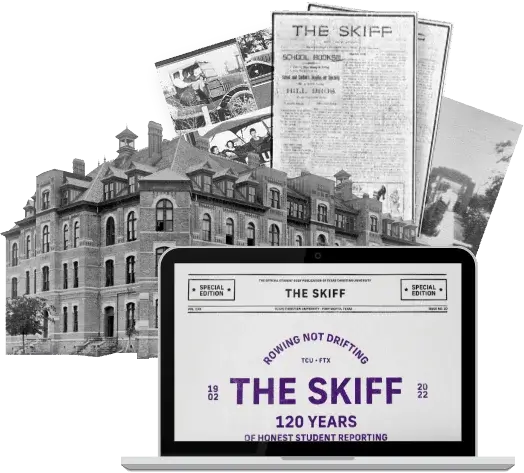
The Digital Skiff
Explore TCU 360, the all-digital news website of TCU Student Media, for today's Skiff articles and more.

TCU Archive Repository
From a simple collection to an entire digital repository, The Skiff will always be remembered.
Visit The RepositoryPrevious
Our PeopleContinue
KTCU Radio